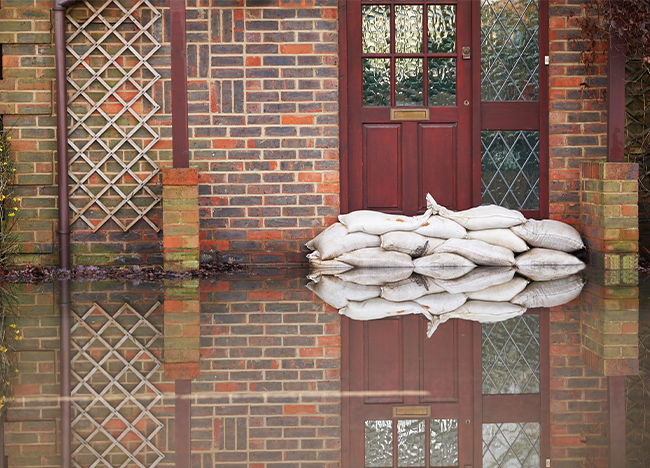Flood insurance is a type of insurance that provides coverage for property damage caused by flooding. Flooding can occur due to natural disasters such as heavy rain, hurricanes, and storm surges. In addition, floods can also occur due to man-made causes such as dam failures and urbanization. Flood insurance can help protect property owners against the financial losses that can result from these events.
Types of Flood Insurance
There are two types of flood insurance available: National Flood Insurance Program (NFIP) policies and private flood insurance policies.
National Flood Insurance Program (NFIP) policies are issued by the Federal Emergency Management Agency (FEMA) and are available to homewoners, renters, and businesses. NFIP policies provide coverage for damage to buildings and personal property caused by flooding. NFIP policies also cover mudslides and landslides that result from flooding. However, NFIP policies do not cover damage caused by water that enters a property from a source other than flooding, such as a burst pipe.
Private flood insurance policies are issued by private insurance companies and are not backed by the federal government.Private flood insurance policies may offer coverage that is more comprehensive than NFIP policies, such as coverage for additional living expenses if you are displaced from your home due to flooding. However, private flood insurance policies may also be more expensive than NFIP policies because they are more comprehensive. Check with your Farm Bureau Insurance Agent to explore your options.
Who Needs Flood Insurance?
Most homeowners and renters insurance does not cover flood damage. Flood insurance is recommended for property owners who live in areas that are prone to flooding. FEMA has designated certain areas as high-risk flood zones, which means that properties in these areas are more likely to be damaged by flooding. If you live in a high-risk flood zone and have a mortgage, your lender may require you to purchase flood insurance.
Even if you do not live in a high-risk flood zone, you may still be at risk for flooding. According to FEMA, more than 20% of flood claims come from properties that are not located in high-risk flood zones. In addition, climate change is expected to increase the frequency and severity of flooding in many areas, which means that even if you have not experienced flooding in the past, you may be at risk in the future.
If you are a renter, it is likely that your landlord has flood insurance that covers the building, but not your stuff. There are contents-only flood insurance policies available that can help protect your belongings inside your unit in case of a flood.
Benefits of Having Flood Insurance
The primary benefit of flood insurance is that it can help protect you from financial losses due to flooding. If your property is damaged by flooding, flood insurance can provide funds to repair or replace damaged property. Flood insurance can also help cover the cost of temporary living expenses if you are displaced from your home due to flooding.
Flood insurance can provide peace of mind. Knowing that you have coverage in the event of a flood can help alleviate some of the stress and uncertainty that can come with natural disasters.
Conclusion
Flood insurance is an important type of insurance that can help protect property owners from the financial losses that can result from flooding. If you live in a high-risk flood zone or are concerned about flooding in your area, it may be worth considering purchasing flood insurance. By doing so, you can help protect your property and your finances if a flood strikes. Talk to your Farm Bureau Insurance Agent today about your Flood Insurance options.
Tags: mortgage, personal finance,
